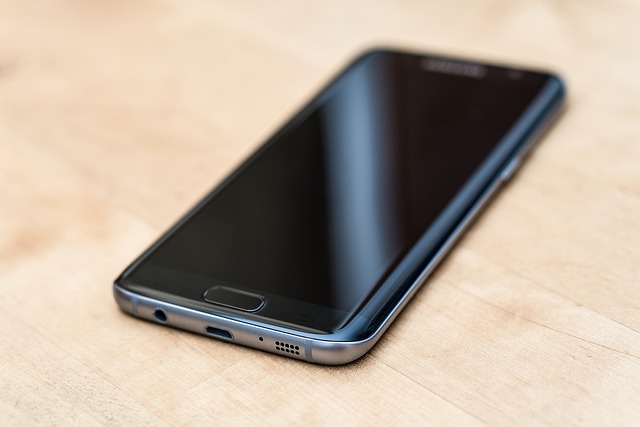In New York, the surge in robocalls and scams has become a major concern, impacting millions. Authorities struggle to trace perpetrators as many calls originate from out-of-state or abroad. To combat this, New Yorkers are advised to remain vigilant and report incidents to bodies like the Federal Trade Commission (FTC). Advanced call screening technology using machine learning blocks scam calls, providing protection. Specialized lawyers guide these systems, implementing algorithms to distinguish legitimate contacts from unwanted ones, ensuring privacy and compliance with local regulations. Engaging a lawyer specializing in robocall cases under the Telephone Consumer Protection Act (TCPA) is crucial for seeking justice and ending unwanted calls.
In the digital age, New Yorkers face an increasing onslaught of unwanted and fraudulent phone calls, known as robocalls. These automated scams target unsuspecting individuals, leading to significant financial and personal losses. To combat this growing issue, advanced call screening technology emerges as a powerful tool. This article explores effective strategies to block scam calls, delving into the mechanisms of modern call screening systems and their legal implications for consumers seeking redress through a lawyer for robocall issues in New York.
Understanding the Impact of Robocalls and Scam Attempts in New York
In New York, the issue of robocalls and scam attempts has become increasingly prevalent, affecting millions of residents across the state. These automated phone calls, often disguised as legitimate messages from banks, government agencies, or even friends, are designed to trick recipients into providing sensitive personal information or clicking on malicious links. The impact is substantial: from causing anxiety and disrupting daily life to potentially leading to significant financial losses for those who fall victim. According to recent reports, a large number of these calls originate from out-of-state or international locations, making it challenging for authorities to trace and stop the culprits.
New Yorkers are encouraged to be vigilant, especially when receiving unexpected phone calls. Those who suspect they may have encountered a robocall scam should consider seeking legal advice from a lawyer specializing in such cases. A lawyer for robocall laws in New York can provide guidance on how to handle these situations, including reporting the incident to the Federal Trade Commission (FTC) or state regulatory bodies, which can help track and penalize the culprits behind these fraudulent activities. Staying informed about current robocall scams and sharing awareness within communities is a proactive step towards mitigating this growing problem.
The Role of Advanced Call Screening Technology in Blocking Scams
Advanced call screening technology plays a pivotal role in blocking scam calls, offering consumers an effective defense against fraudulent activities. This innovative solution utilizes sophisticated algorithms and machine learning to identify and filter incoming calls, distinguishing between legitimate contacts and potential robocalls or scams. By analyzing various data points such as caller ID, calling patterns, and speech characteristics, these systems can accurately predict and block unwanted communications.
In New York, where the prevalence of robocall fraud remains a significant concern, such technology has become an indispensable tool for residents seeking protection. A lawyer specializing in robocalls can guide individuals on implementing these advanced screening methods, ensuring compliance with local regulations while safeguarding personal privacy. With ongoing advancements in call screening technology, consumers have a powerful ally in their battle against scam calls, enhancing their overall safety and peace of mind.
How Call Screening Systems Work to Protect Consumers
Call screening systems have emerged as a powerful tool in the battle against scam calls, offering consumers an additional layer of protection in their daily interactions. These innovative technologies utilize advanced algorithms and machine learning to analyze incoming calls, allowing users to make informed decisions before answering. By employing sophisticated patterns recognition, these systems can identify potential robocalls or fraudulent attempts, alerting the caller’s identity and purpose.
In New York, where the prevalence of unwanted robocalls has been a growing concern, call screening systems play a pivotal role in empowering consumers. A lawyer for robocall in New York would attest to the importance of these tools in mitigating the impact of fraudulent activities. By providing real-time insights, consumers can choose to accept or decline calls based on the information displayed, significantly reducing the risk of falling victim to scams and ensuring a safer communication environment.
Legal Aspects: Seeking Relief as a Victim of Robocalls with the Help of a Lawyer
As a victim of scam robocalls, seeking legal recourse can be a complex journey, but it’s far from impossible. In the US, particularly in New York, there are stringent laws in place to protect consumers from unwanted and fraudulent phone calls, such as the Telephone Consumer Protection Act (TCPA). If you’ve been affected by these nuisance calls, consulting with a lawyer specializing in robocall cases can be immensely beneficial. They can guide you through the legal framework and help you understand your rights under the TCPA, which provides for damages of up to $500 per violation, or triple damages if it’s proven willful or negligent.
A lawyer can assist in compiling evidence, including call records, to build a strong case against the culprits. They can also negotiate with scammers or their legal representatives on your behalf, aiming for financial compensation and an end to such activities. Remember, time is of the essence; many cases have statutes of limitations, so promptly seeking legal counsel after experiencing robocalls can significantly impact the outcome.






